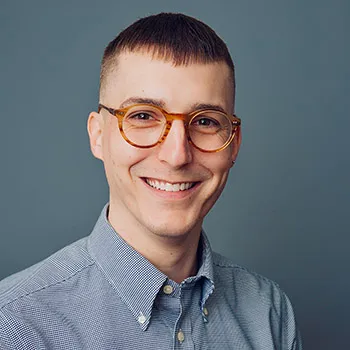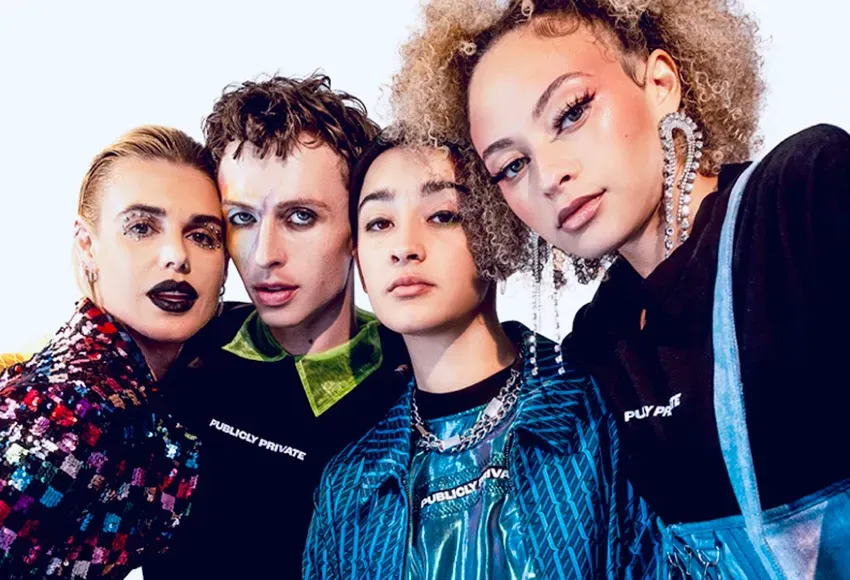Pansexual Visibility Day was on May 24, but for Publicly Private founder and executive director Kollyn Conrad, Pan awareness is a concern year-round. The nonprofit just hit its one-year milestone serving the wider LGBTQ+ community, offering supplies, support, and empowerment in safe, discreet, and widely accessible ways.

Publicly Private currently runs three online-only programs. "Explore" is a hub for information around culture, community, and health. "Venture" is a sexual health resource center, where one can order prophylactics, testing kits, and baseline PrEP services. "Strengthen" organizes group therapy sessions.
With only a glance at the nonprofit's website, one might be surprised to find out that it serves the LGBTQ+ community. Its grayscale color scheme and minimalist design could pass for a storefront for bespoke athletic wear, or a generic life coaching program. That's the point, though. Most Seattleites wouldn't bat an eye if a rainbow package arrived on their neighbor's doorstep, but Publicly Private's brand is built to fly under the radar in more hostile places.
"Our larger long-term goal is to continue to expand across the South to those rural places where you don't have an LGBTQ+ center, and you don't have a landmark building that provides such resources for you," Conrad said. "So we're going to be that landmark space online."
Signal boosts
Serving LGBTQ people is the nonprofit's goal, but unfortunately, the medical profession has some catching up to do.
"There's a lot of lack in education surrounding identities, and ...the resources they need," Conrad said. "If you walk into a clinic, you have Gay and Lesbian defined, but [as a] Pansexual, your encounters are completely different."
"In order for me to fully test with our Venture resource program, I have to order two separate kits," Conrad said, as an example. "Because I require a different set of tools in order to make sure that my sexual well-being is at its best."
Conrad knows firsthand how hard it can be to find resources in a place where not being straight, let alone Pansexual, isn't socially acceptable. He grew up Queer in the South, describing his sexuality as "open love."
"It was a softer term for me to come into as a young male still figuring it out," he said. "It's really, really nice to see that there's a word for [Pansexual] now, because I remember growing up, and it was not a presented option."
Over the last eight years, there have been some signal boosts. Conrad noted how Miley Cyrus came out as Pan in 2016, and how Janelle Monaé did in 2018, declaring herself a "free-ass motherfucker" in an interview with Rolling Stone.
Wikipedia defines pansexuality as "sexual, romantic, or emotional attraction towards people of all genders, or regardless of their sex or gender identity."
"And that's what embodies Pansexuality," Conrad said. "You don't fall into the binary of all of it. And it's so beautiful. You just see relationships and connections as they are. You're not looking at the physical form, in a sense."
He explained that Panromantic, meanwhile, "is kind of along those lines of a Demisexual, where they need more of a connection with somebody before it proceeds further within the relationship. But it all falls under the Bi+ community."
Labels for research, support, and funding
Conrad qualified the need for Pan awareness with the idea that labels aren't a monolith, and that sexuality is fluid and complex.
"While we do need to define it, in a sense, for science and scientific studies, and so that we can try to group these people and create support for them, we don't always put a label on them," he said. "That was one of the hardest things that I found out when I started Publicly Private, is that in order to get funding, we have to almost in a sense make people label themselves."
Funders for LGBTQ Issues, an organization that promotes philanthropy benefiting the Queer community, released a report last month showing that "for every $100 awarded by US foundations in 2021, only 28 cents specifically supported LGBTQ communities and issues."
It also found that the Mountain and Midwest regions of the country were chronically underfunded compared to the rest, and although total funding in the country as a whole had increased by 61%, "the rising tide has not lifted all boats." Over 81% of LGBTQ+ grant dollars that year were allocated to LGBTQ+ organizations in general, leaving about 19% for the most vulnerable groups. Bisexual people, which can include Pansexual people, were allocated less than 1%. Asexual people got zero.
"We're still in that fight, like I said, to represent visibility for everyone," Conrad said. "I think that's what we really try to stand by, is whether you identify with some of the LGBT community, or you are standing alone in your identification, we are here to support you, because we consider the Queer community one."


